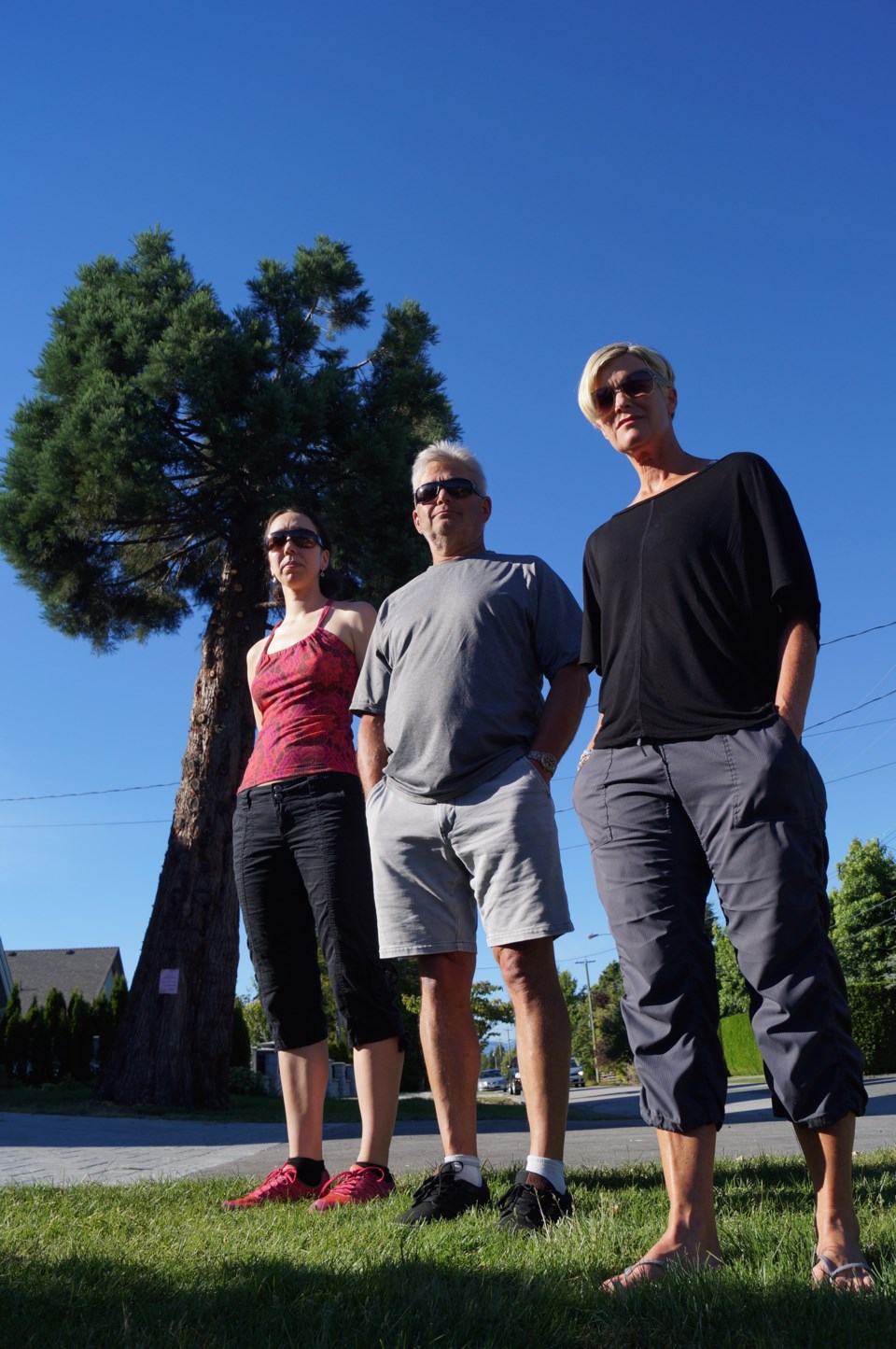A homebuilder who ordered the cutting of a large sequoia tree on public property on Gibbons Drive agreed, last year, to an out-of-court settlement with the City of Richmond.
But the non-disclosure agreement, following a short police investigation, isn’t sitting well with at least one area resident, who tried to defend the tree at the time.
“I’m not happy with that,” said Paul Dylla, who lives down the road from the tree, which now stands as half of its past glory.
“For a couple reason,” Dylla continued. “First of all, it doesn’t provide any deterrent to other builders because they don’t know how much they can get fined for something like this. Some will look at this as a cost of doing business.”
In 2016, the city claimed the owner of 6691 Gibbons Drive repeatedly hired a pruner to cut down a tree, in front of the property but on municipal property, valued at between $75,000 and $100,000.
At the time of the cutting, property records obtained by the Richmond News showed the property was owned by Jasvir Cheema, who has built a number of homes in Richmond. Cheema could not be reached for comment then or now, via phone numbers linked to him on city permit applications.
Information on the settlement is limited for legal reasons, according to city spokesperson Ted Townsend. “I can advise that the settlement was with the property owner who owned the property at the time of the incident. The settlement was concluded in early 2017,” said Townsend.
Dylla said he had spoken to city officials last year about what came about from the incident, which drew shock and outrage in the neighbourhood. He said it was his understanding that the city could settle for an amount higher than the prescribed maximum bylaw fine of $10,000 for illegally cutting down a tree.
Townsend confirmed, “Whether in court action or negotiated settlement, numerous factors are considered in determining amount; the final amount is not necessarily determined or limited by prescribed bylaw fines.”
Dylla said he’d prefer it be public knowledge that developers are being fined for illegally cutting down trees, even if it means having the city go to court.
“By the city being mum on this, they’re saying they’re not being tough on enforcement. How will other owners know that the city takes this seriously?” he asked.
“If it concludes in court, that becomes public info and we’d all know what happened. And it would be public record.
“It’s a way of keeping things quite hush hush. I don’t think that benefits the city at all,” added Dylla.
The News asked Mayor Malcolm Brodie – a former lawyer – about the deterrence, however he said he had limited information at hand on the case and wasn’t willing to speak about it or any generalities.
Dylla said he assumes, if not hopes, the owner was charged more than $10,000.
Records show the property was sold in February 2017 for $3.1 million, after being listed for $3.7 million. Cheema had bought the home in 2014 for $1.1 million and, that year, applied for a building permit for a new house with a construction value of $414,000.



